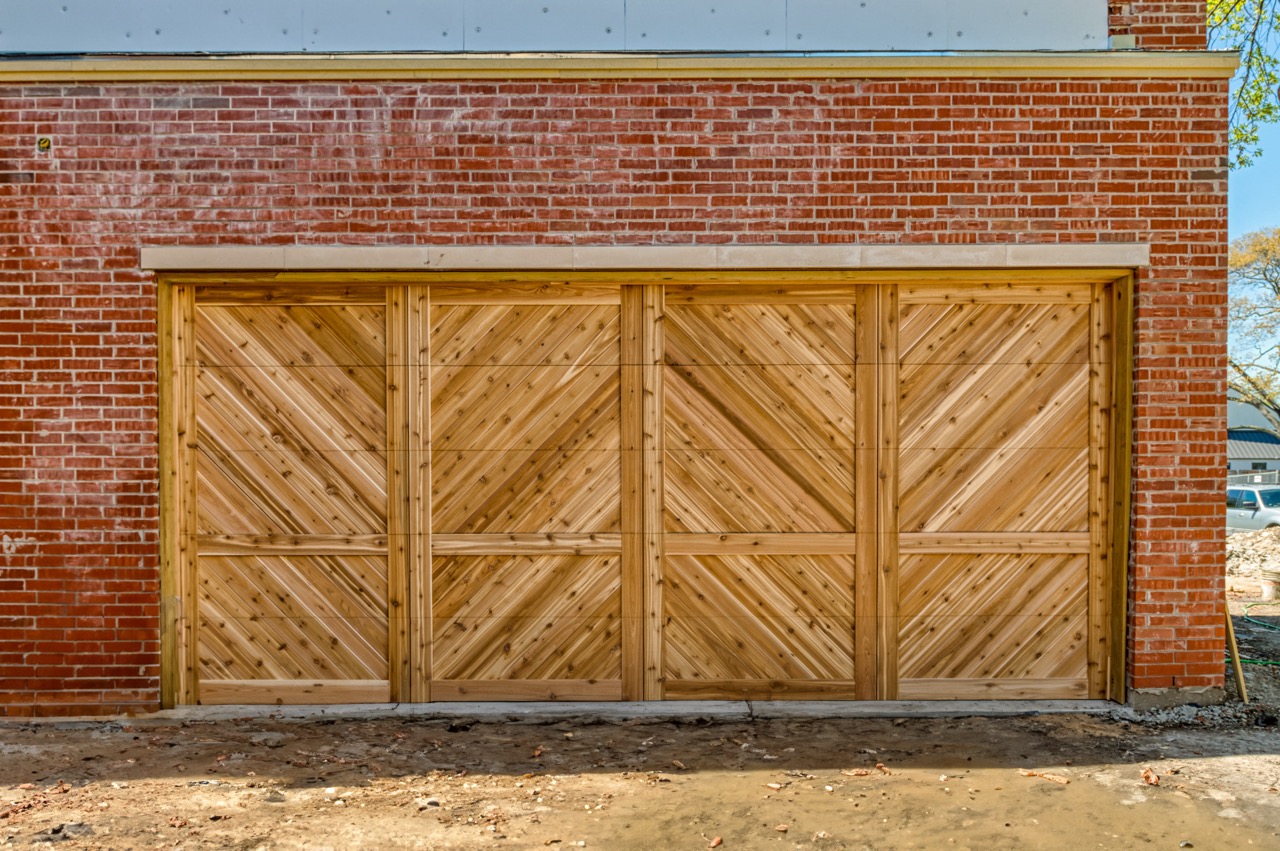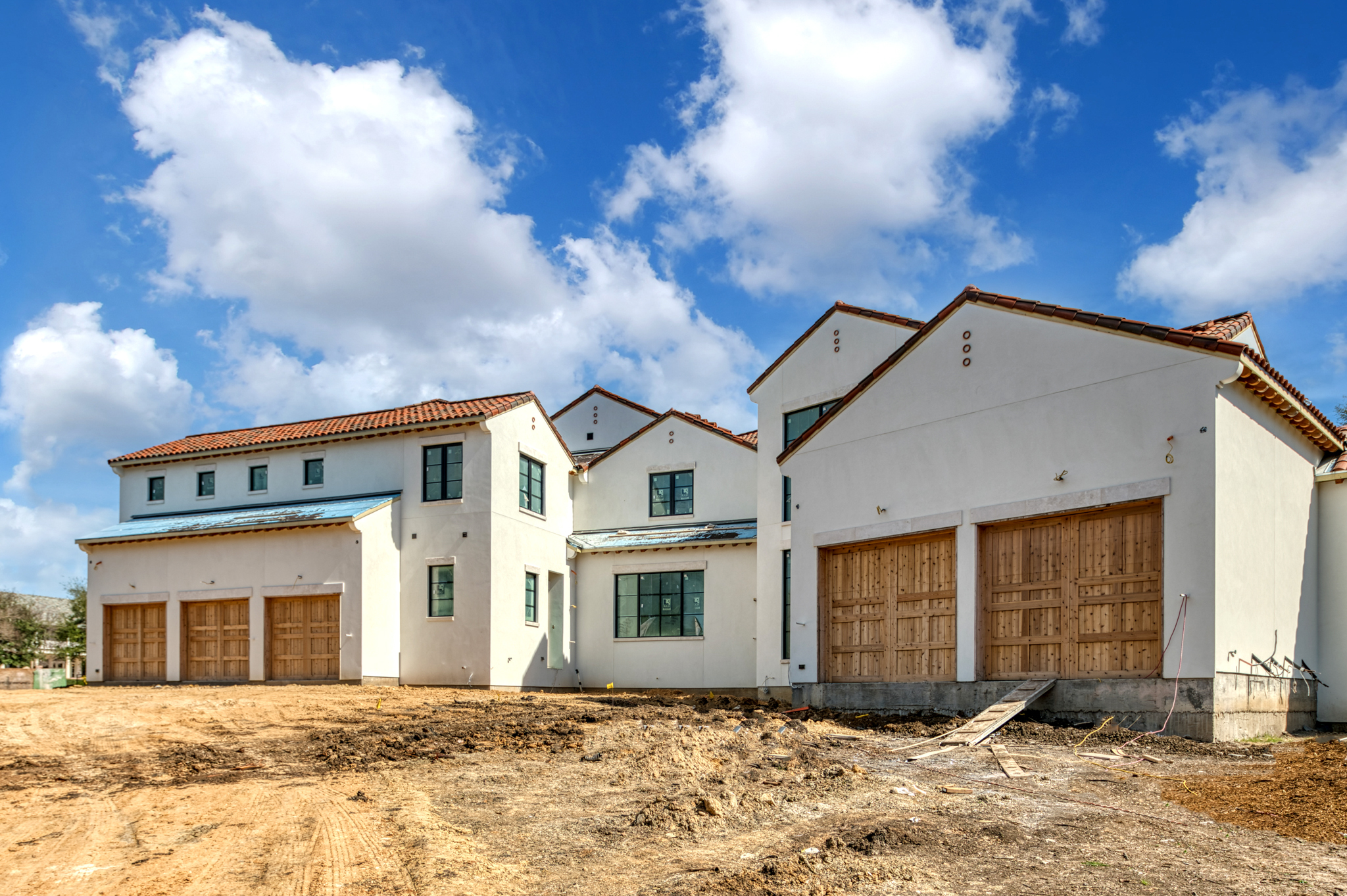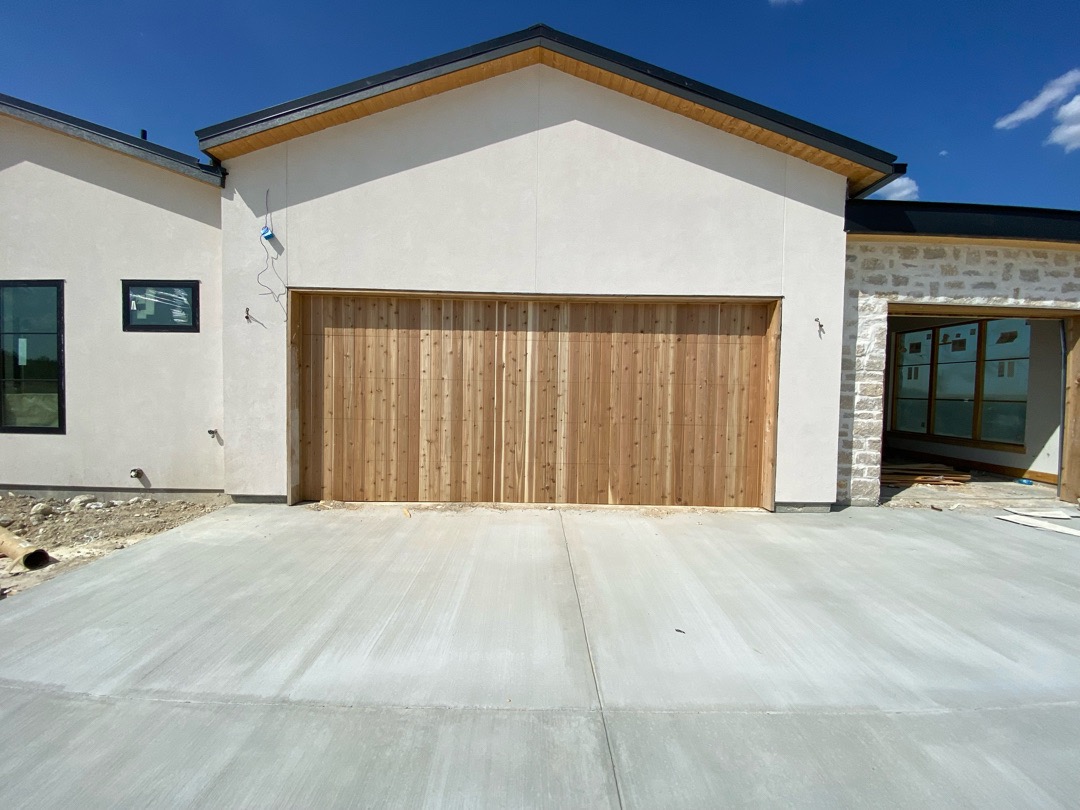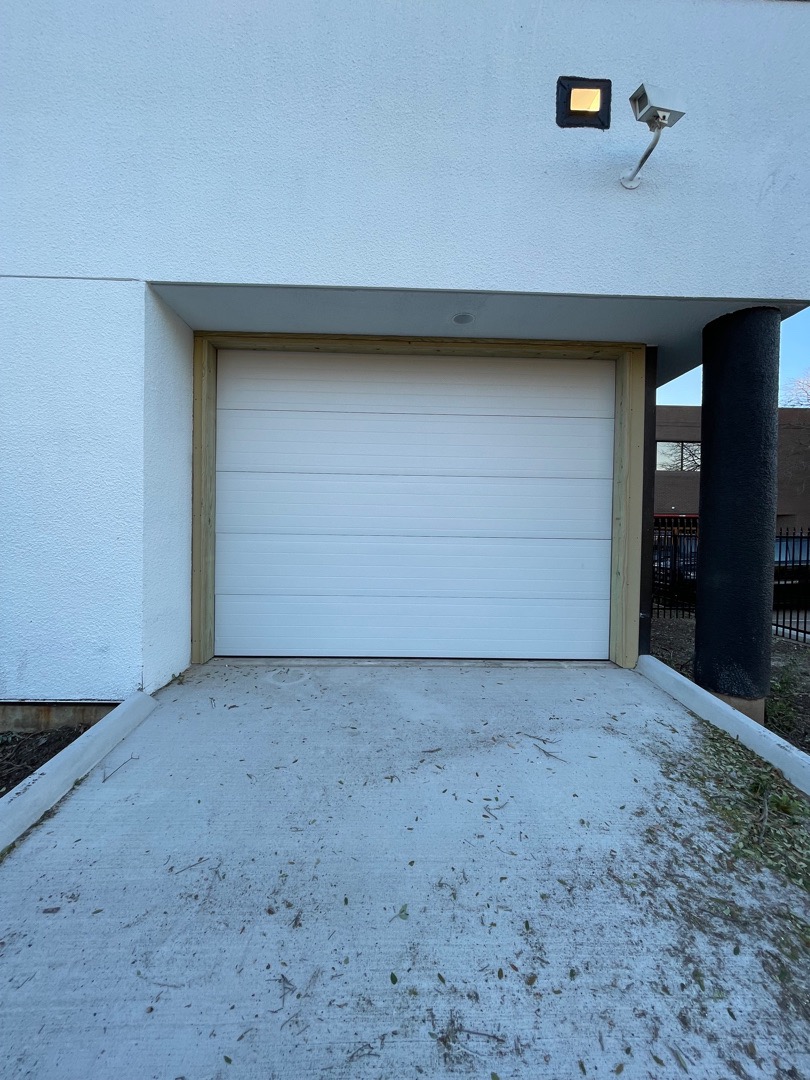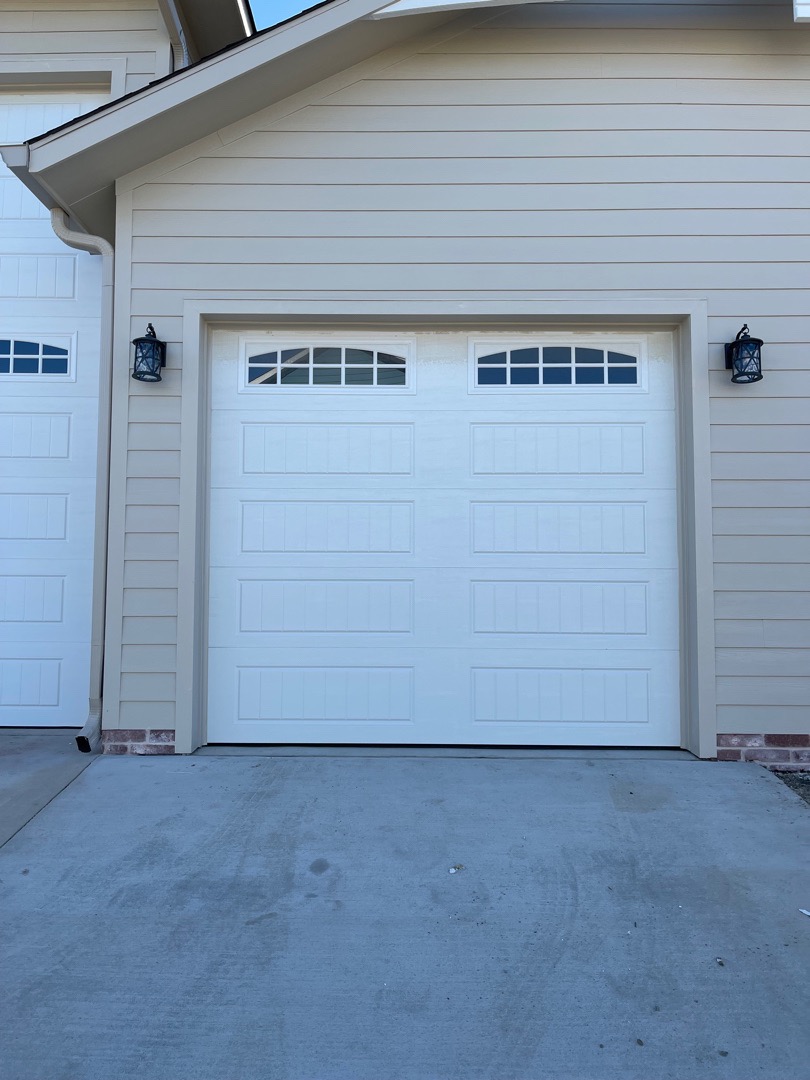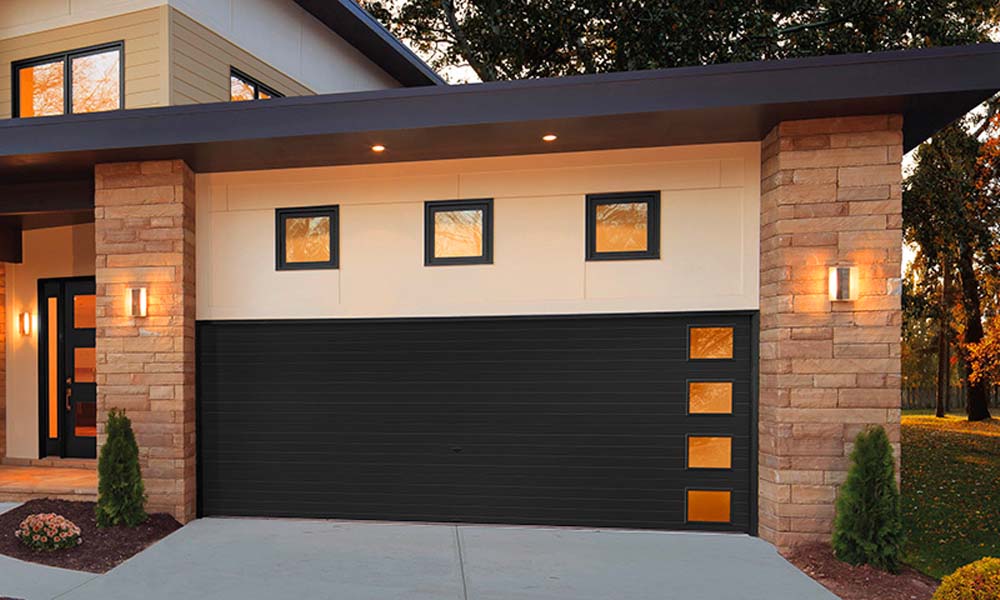In the world of garage doors, homeowners often face two popular choices: wood garage doors and steel garage doors. Each material offers its own set of advantages and disadvantages. This article covers the differences between wood and steel garage doors, helping you make an informed decision for your home.
Wood Garage Door Advantages
Attractive Look
One of the main advantages of wood garage doors is they are crafted from natural materials. Wood has a timeless appeal that enhances the overall aesthetic of your home. Whether you prefer a modern or traditional look, wood garage doors can be customized to fit your style.
Energy Efficiency
Another advantage of wood garage doors is their insulation properties. Wood is a natural insulator, providing better temperature control within your garage. This can be particularly beneficial if you use your garage for other purposes, such as a home gym or workshop.
Durability
Wood garage doors also offer excellent durability when properly maintained. Wood doors can last for 20+ years with regular cleaning and occasional refinishing.
Increased Resale Value
Furthermore, wood garage doors can add value to your home. Potential buyers often appreciate the upscale and classic look of wood doors, which can increase the curb appeal of your property. This can be a significant selling point if you ever decide to sell your home. The latest Cost vs Value report shows that an investment in a new garage door yields the largest ROI of any home improvement project.
Customizable
In addition to their aesthetic appeal, wood garage doors are highly customizable. You can choose from various wood species, finishes, and designs to create a unique look that complements your home’s architecture. Whether you prefer the rich tones of mahogany or the rustic charm of cedar, there is a wood option to suit your taste.
Wood Garage Door Disadvantages
Potentially Cost More
Some wood garage doors cost more than builder-grade steel doors. However, the cost argument is not that cut and dry. Triple-layer steel garage doors with insulation and glass can cost more than wood. The cost comparison depends on what style, finish, and options you need for your project.
Lifetime Cost of Ownership
Wood garage doors also require more maintenance compared to steel doors. They must be regularly inspected, refinished, and protected from moisture to prevent warping or rotting. This maintenance can be time-consuming and may involve additional costs.
Steel Garage Door Advantages
Durability
Now, let’s turn our attention to steel garage doors. One of the main advantages of steel doors is their durability. Steel is a strong material that can withstand harsh weather conditions, making it an excellent choice for areas prone to extreme temperatures, heavy rain, or high winds.
Relatively Lower Maintenance
Steel garage doors also require minimal maintenance compared to wood doors. They are resistant to rotting, warping, and insect damage, eliminating the need for frequent repairs or refinishing.
Lower Lifetime Cost of Ownership
In addition, steel garage doors are generally more cost-effective than wood doors. Large corporations manufacture them in a streamlined process, which helps keep the overall price lower without compromising quality.
Speed of Installation
Most local garage door companies have an inventory of steel garage doors that can be installed on the same day, compared to three to five weeks for a custom wood garage door.
Steel Garage Door Disadvantages
Garage Door Designs Not Customizable
One major disadvantage of steel garage doors is that their designs cannot be changed. When buying a steel garage door, the question is, can you find a design you’re happy with from a brochure? We are not saying that steel door designs are lacking, but they are not as varied as what you can build from wood.
Thermal Conductivity
Steel garage doors without insulation will transfer the outside temperature inward. Because there is no insulation, the inside temperature is similar to the outside, which does not help maintain your garage temperatures.
Insulated steel doors solve this, so we always recommend at least a two-layer steel garage door with polystyrene insulation.
Easily Damaged
Steel doors are susceptible to dents and dings, especially if they are hit by heavy objects or vehicles. Most garage door steel ranges from 24 ga to 27 ga, so the slightest bump of a soccer ball or ding from a trash bin can result in significant damage. Depending on the severity of the damage, you may need to replace an entire door section to restore the door’s functionality and appearance.
Quick Assessment
When it comes to which garage door type might be a good fit for you, here is what we have found:
Wood garage doors are usually a fit for those who:
- Have a budget of $3,500 and up
- Desire a custom design, like a chevron pattern or other carriage styles
- Want to showcase natural materials like mahogany, white oak, cedar, or Douglas fir
- Take pride in home ownership and maintaining their home
- Want to leverage their garage door to differentiate their home from their neighbors
Steel garage doors are usually a fit for those who:
- Have a budget of $2,000 – $3,000
- Will only live in the home for a few years
- Need a fast replacement door due to damage
- Want low maintenance
With that in mind, if you are interested, you can check out our wood garage door designs.
You can also get an easy online quote for a wood or steel garage door.
Looking for more info? You’re in luck! Check out the following articles and images from our archives.
Wood Garage Doors Articles:
- Best Wood for Garage Doors
- How to Stain Wood Garage Doors
- Cedar Garage Doors
- Douglas Fir Garage Doors
- Mahogany Garage Doors
- White Oak Garage Doors
Steel Garage Door Articles:

